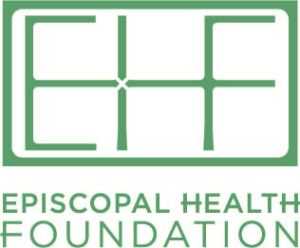Houston, TX
episcopalhealth.org
 Episcopal Health Foundation’s vision is to transform all of Texas to healthy communities. How do you define “healthy communities?” What do you mean when you say #HealthNotJustHealthCare?
Episcopal Health Foundation’s vision is to transform all of Texas to healthy communities. How do you define “healthy communities?” What do you mean when you say #HealthNotJustHealthCare?
EHF believes healthy communities are created when diverse people come together to develop community-driven, people-centered health systems. We believe that healthy communities should not only ensure that all Texans receive quality medical care, but that the places they live and work should help enable them to get and stay healthy.
It’s clear that issues such as housing, employment, poverty, transportation and education have a great influence on a family’s health status. But the U.S. spends $3 trillion a year on health care – not health. When it comes to spending on social services, the U.S. ranks below most developed countries in the world. Despite massive spending on health care, we have the lowest life expectancy and highest rate of infant mortality of those developed countries.
While providing health care services is critical, EHF’s focus goes beyond the exam room to address the underlying causes that lead to poor health. That’s why we’re dedicated to improving #HealthNotJustHealthcare in Texas.
If we don’t address the root causes of poor health, clinic visits alone won’t make a difference. Overall community health will continue to decline, and vulnerable, low-income families will continue to suffer more than anyone else.
The foundation’s website mentions that “we’re not just funding more … we’re investing in different.” What are some of the different strategies the foundation is pursuing?
We’re convinced that simply building more clinics to serve more people won’t heal a broken health system. Our grant investments fund organizations and programs that work “upstream” to focus on new and different ways to provide preventive health services and address the challenges that cause people to become unhealthy.
We’re working to strengthen systems of health to make them more accessible and equitable – not just deliver “after-the-fact” medical care.
EHF is also helping grant partners and congregations organize and focus their efforts to better understand the health needs of their community.
Finally, we’ve recently focused efforts to help health systems and families implement best practices for healthy child brain development from before birth to age three. We believe this is a key strategy to helping Texans build the foundation for a healthy life.
Why should health funders be concerned about federal and state policies that affect health care in the country?
Improving health requires policy and public funding commitments at the highest levels. The financial contribution philanthropy can make – through grants and program-related investments – is tiny compared with the contribution made (or withheld) by public sources. All our philanthropic resources cannot make up for poor public policy choices.
The current “repeal and replace” debate is an excellent example of the importance of public policy and its impact on health philanthropy. For decades, many health foundations focused efforts on helping low-income and vulnerable populations access healthcare by gaining insurance coverage. When the Affordable Care Act (ACA) passed in 2010, many foundations supported government agencies in implementing that coverage. The remarkable decrease in the uninsured rate that resulted from the ACA enabled health foundations to shift resources to other matters, including health equity. The advances in coverage that enabled this shift may be lost if an ACA replacement significantly reduces coverage.
Philanthropy can move the ball forward when public policy is aligned, but our work gets much harder when that is not the case.
What advice do you have for funders exploring how they can improve health and health care in their communities?
We believe the way change occurs is through the engagement of community members. The people “on the ground” are most affected by community health and have deep knowledge of their own lives and communities. Funders can support organizations that seek to raise these voices: community organizing groups, civic engagement groups, leadership training. If we help community members engage, our own agendas will be advanced.